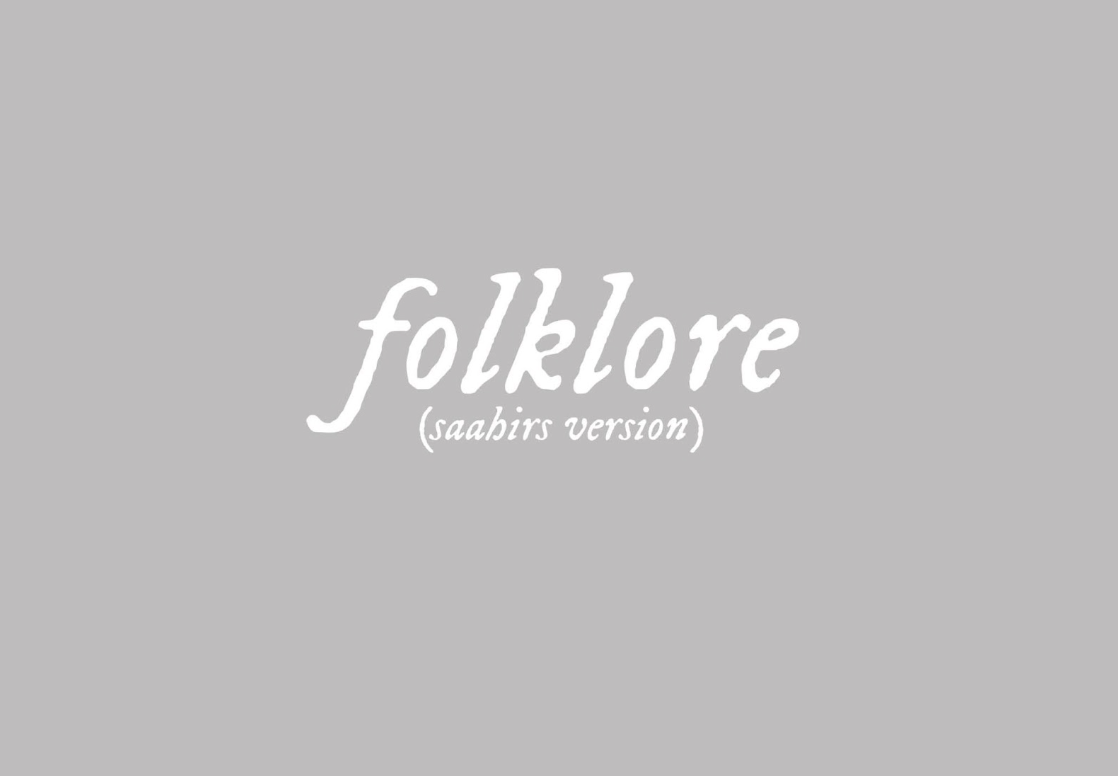Album Synopsis
On July 23, 2020, Taylor Swift announced her new album, “folklore,” was coming out at midnight. This album marked the beginning of her collaborations with producer Aaron Dessner, her fourth collaboration with Jack Antonoff and the inaugural writing partnership between Swift and her boyfriend at the time, actor Joe Alwyn.
Swift began to explore another new sound, taking a leap into the indie folk genre. The album’s songs are reminiscent of “Punisher” by Phoebe Bridgers. Her switch in genres was not the only change, as she wrote this album during the COVID-19 pandemic. Swift went from telling the autobiographical stories of her life to writing about fictional stories.
Peeling back the curtain into what inspired the woodsy aesthetic of the album, Swift released an original documentary film on Disney+, titled “Folklore: The Long Pond Studio Sessions,” in which she recorded every song on the album acoustically, creating a stripped-back version of the Grammy-winning album.
Teenage love triangle
Overview: When the fictional world of “folklore” comes to mind, I think of a woodsy town in which a teenage love triangle unravels. This story takes place over the course of three songs, each from the perspective of different characters. A high school relationship is depicted between characters, James and Betty. James, however, cheats on Betty over the summer with Augustine, who believes their summer together had to be true love while James views it as a “summer fling.”
The song, “cardigan,” is from the perspective of Betty, in which she recounts how James made her feel before he cheated on her. My favorite line in the song is the moment where Betty realizes James is cheating on her and says “chase two girls, lose the one,” (a callback to “the 1,” the first song of the album). The pre-chorus following the bridge continues the revelations, with Betty acknowledging all the strategies James used to cover up his “High Infidelity.” Despite this song being the lead single, I truly think the song’s lyricism is extremely underhyped.
A letter to the titular character, “betty” is a banjo-harmonica-infused song, bringing back the country twang used in Swift’s first three studio albums. Written from the perspective of James, the listeners learn how he felt about the summer he spent with Augustine. He recounts moments of his relationships with both Betty and Augustine, staggered between pleas of desperation, asking “if [he] just showed up at [Betty’s] party, would [Betty] have [James], would she want him?” and assumptions about the demise of their relationship. I thoroughly enjoyed the difference in sound from “cardigan,” and loved hearing the reappearance of the country in Swift’s voice, even if it was from the perspective of a cheater.
However, what has to be my favorite from the trio is “august.” It’s written from the perspective of Augustine, and how she felt being the ‘other woman.’ Getting to visualize James and her meeting behind the mall and sneaking off to spend time together – only for Augustine to get more attached than James – coupled with the instrumentals. I can only describe this song as “a beach in the winter time,” which is truly the perfect combination to immerse yourself into Swift’s fictional world. This song holds one of Swift’s best hidden emotional lyrics, as behind the intensity of the bridge lies an extremely heartwrenching line, “wanting was enough, for me it was enough,” claiming Augustine was willing to sacrifice things for James. In the end, James still could not get Betty out of his head.
Top standard songs
Since this album has only one bonus track, I decided to choose my top three songs from the standard edition of her first pandemic album.
My absolute favorite song on this album, “the last great american dynasty,” tells the story of Rebekah Harkness, a high-society socialite who passed away in 1982. Swift initially sings the song from a biographical point of view, combining the life facts, and the murmurs of the crowd around Harkness. The first two minutes and 45 seconds of the song are a confusing turn from Swift’s usual songs as she fully tells the story of someone else, until you hear the words “and then it was bought by me.” Whether it be live on “The Era’s Tour,” a vinyl playing in my room or blaring through my headphones, these “seven” words transport me back to when I first heard the narrative shift. My jaw dropped in shock, and I screamed my brother’s ear off. The rest of the song follows the same structure, and she reclaims the story to fit both her life and the life of the last person who owned her Rhode Island house.
A song that has never failed to evoke an emotional response on me is “exile (feat. Bon Iver).” Written in a dual perspective, Swift revealed that the first verse of the song, alongside the piano accompaniment, was written by Alwyn. The song opens with Justin Vernon’s deep voice, expressing the hurt his character feels: watching a past lover move on so quickly. While this may trigger a pang of sympathy, it is then revealed that Swift’s character is fully aware of Vernon’s gaze on her and her new lover, and is frustrated that he didn’t fight for her, despite the signs she was putting out. This plays out throughout the entire song; however, each chorus returns to the phrase “I think I’ve seen this before, and I didn’t like the ending,” showing this is a pattern they have developed. The back and forth of pure heartbreak for nearly five minutes requires me to place myself in an open headspace before listening, specifically to combat the aggressive tidal wave of emotions I have yet to build an immunity against.
Swift then grants her audience with “peace” by returning to a personal narrative correlating with her life. The song guides the listener through the constant struggle she faces in the limelight, pushing her to ask “would it be enough if I could never give you peace?” The heartbreak in this song is extremely evident. You can hear Swift’s fear: that she will be the cause of her partner getting overtaken by the noise, something that she can not live with given how much she cares for this person.
Bonus songs
Lastly, “the lakes – bonus track” is a beautiful song full of rich string melodies. It plays into Swift’s signature autobiographical style, reflecting on her life experiences in the verses, and pleading with her lover to escape to a place where they can not be reached so that her choices can not be scrutinized. This song has two versions: “the lakes – bonus track,” which came alongside the deluxe version of the album, and “the lakes – original version,” which spins the song into a cinematic masterpiece.
My favorite part of this song is when Swift calls out former owner of Big Machine Records, Scott Borchetta, saying “I’ve come too far to watch some name-dropping sleaze (Borchetta using Swift’s name to propel his record label) tell me what are my words worth (Borchetta selling Swift’s masters to Scooter Braun — someone Swift has gotten in public drama with multiple times).”
This song is one of my favorite tracks released as a “bonus track,” easily out-competing many of Swift’s signature Vault Tracks.




